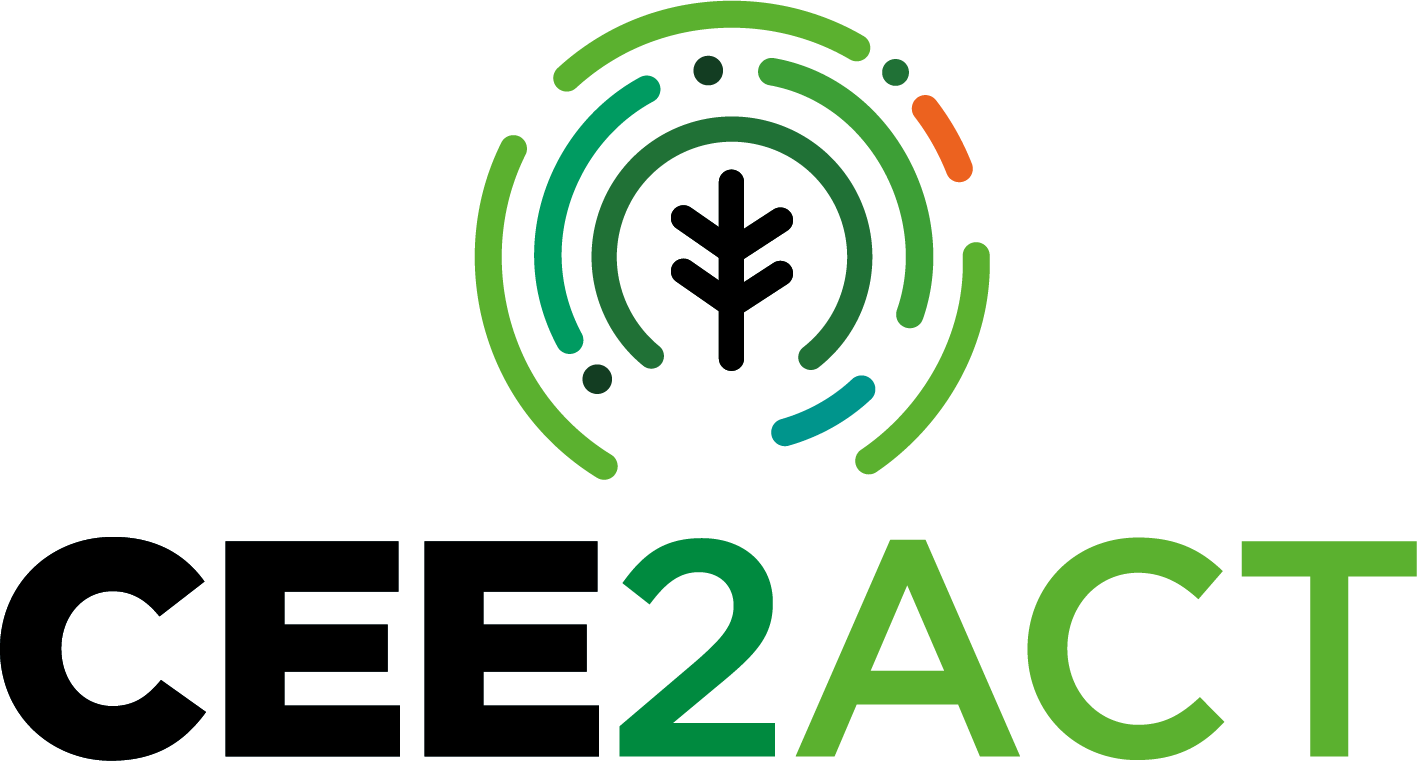Title: Circular Bioeconomy Strategy of Andalusia (2018)
Funding source: It will have its own funds from the different Management Centres and Instrumental Entities that have participated in the design of the Strategy, which will also be responsible for the future implementation of the actions. Other sources of funding will be added to these funds, mainly from the European Union, including the EAFRD, through the Andalusian Rural Development Programme (RDP) 2014 - 2020.
|
|
Budget (€) |
|||
|
2018 |
2019 |
2020-2030 |
Total |
|
|
TOTAL |
37.990.482 |
111.644.118 |
1.277.938.121 |
1.427.572.721 |
Table 1. Annual budget of the Strategy of Andalsia for a Circular Bioeconomy
Implementation period: 2018 - 2030
Description:
The Andalusian Circular Bioeconomy Strategy will be focused on promoting the bioeconomy sectors and activities which are underdeveloped, and in consequence, they need more institutional support by the implementation of measures and further actions, which lead to a consolidation in the medium to long term.
Therefore, the scope of the Andalusian Circular Bioeconomy Strategy does not include the primary and agro-industrial production of food for human consumption, as these sectors are already part of plans and strategies under development. However, if during agri-food production, food ceases to be destined for human consumption, due to loss of quality or non-compliance with requirements, it will be considered as a resource for the bioeconomy.
The following are considered as resources for obtaining bioproducts and bioenergy:
- Residual biomass from agricultural crops (plant remains from herbaceous crops)
- Biomass from pruning waste
- Livestock waste and by-products: slurry, manure and animal parts not intended for human consumption
- Discards and by-products from the fishing industry
- Forest biomass
- By-products from the agri-food industry
- Algal biomass (CO2 is included as a resource for the production of algal biomass)
- Bio-waste (municipal and other organic waste)
- Sludge and effluents from sewage treatment plants
Sustainable biomass production practices that promote resource efficiency, such as water use, are considered within the scope of the Strategy. Practices that promote the efficient use of resources, such as the use of reclaimed water or the reuse of by-products as inputs for biomass production.
The target markets for bioproducts and bioenergy are multiple and diverse, including the following: construction, consumer goods, chemical industry, pharmaceutical industry, food industry, cosmetic industry, agricultural sector, fishing sector, forestry sector, etc.
Based on the above, the Andalusian Strategy for the Circular Bioeconomy will focus on the set of activities that make up of the three basic segments of the Circular Bioeconomy that compose bioproducts and bioenergy value chains within a framework of sustainable use of resources.
- Production of biobased raw materials and biomass, the first step of the value chains
- Technological processing, which transforms raw materials into higher value-added products and/or bioenergy
- Consumption market of bio-based products and bioenergy
On the other hand, the strategic and instrumental framework of the Andalusian Strategy for the Circular Bioeconomy is based on the measures structured around four strategic lines and four cross-cutting instrumental programmes.
The strategic lines and instrumental programmes and the proposed measures aim to foster a productive ecosystem that favours the start-up of activities associated with this new way of producing, based on an R&D&I+F system that responds to the research and technological development needs of its associated sectors, improves the skills of young people, improves the capacities of young people and women and favours synergies and complementarities between the agents involved. They also seek to establish a stable regulatory framework for its development and communicate the benefits of the bioeconomy to society. The following strategic lines have been developed:
- Strategic line 1: Sustainable production and availability of biomass resources. This is aligned with the objective of increasing the availability of sustainable biomass resources for the use through innovative treatments. The objective is to turn the wealth of biomass resources available in Andalusia into a lever for change that facilitates and favours the transition of Andalusian industries towards the production of bioproducts and bioenergy. The measures proposed in this field are based on the characterization of the biomass resources and improving the availability of it.
- Strategic line 2: Infrastructures and logistical management. This strategic line is complementary to the previous one as it is focused on increasing the availability of biomass. With its measures and actions, it aims to optimise the management and distribution of biomass resources from the points where they are generated to the bioindustries that use them as raw material. Additionally, two measures have been proposed in order to address this challenge: Improving the knowledge of biomass resources and their sources by addressing logistical factors; and keeping and improving infrastructures and implement instruments to ensure the supply of resources to bio-industries taking into account the sustainability of the value chain. Concerning the specific measures, firstly it will be improved the process of biomass resource preparation, and it will be promoted models that increase the eco-efficiency of their transformation. Secondly, the creation of bio-based industries will be supported, particularly the integrated ones.
- Strategic line 3: Industrial processes for the transformation of biomass resources and industrial production capacity for bioproducts and bioenergy. This strategic line is aligned with the objective of increasing the volume of bio-based industries and biorefineries in Andalusia and aims to promote and support the bio-based industry that optimises the use of Andalusia's biomass resources, especially integrated biorefineries.
- Strategic line 4: Bioenergy and Biobased products market development. Once the diagnosis on the development of markets for bioproducts and bioenergy in Andalusia has been presented, the implementation of this strategic line is justified, with measures and actions that make it possible to take advantage of the potential detected and respond to the needs, taking into account the experience already available in this field in this region. Regarding the measures to achieve this goal, the first measure proposed is to carry out studies on bio-based products, bioenergy and services linked to bioeconomy. Additionally, the use and distribution of bio-based products and bioenergy will be boosted.
Apart form the strategic lines, instrumental programmes have been designed in order to support the strategic lines, which have been explained previously.
- Instrumental programme A: Communication and sensibilization of the society concerning bioeconomy. Its aim is to inform the society about the importance of valorising biomass resources in the context of the circular economy and sustainability, emphasising the improvement of the environment and the efficient use of resources, all of which are of great social importance. Dissemination is essential to bring about the paradigm shift that the bioeconomy entails, and the support of the public for this new way of doing things, of giving value to things, to give value to what until now had no value. It would be achieved by explaining the population the positive externalities of bioeconomy.
- Instrumental programme B: Promoting R&D&I+F for the development and expansion of the bioeconomy in Andalusia. The objective of this instrumental programme is the generation and incorporation of knowledge in the field of the bioeconomy through the promotion of research, boosting of innovative capacity and the technology transfer between its actors and agents. In this line, promoting innovation becomes a priority in the development of the Andalusian bioeconomy and, in order to respond to this, it will be necessary to encourage the planning of Andalusian research activities to include the real technological needs demanded by Andalusia's agents of the different links in the bioproducts and bioenergy production chains. In this context, the transfer of the innovative techniques to the enterprises would be essential. Additionally, the training programmes to increase the knowledge and the skills of the current labour forces and the future generation in tasks related to bioeconomy is envisaged. The proposed measures in order to reach these objectives are the following: Fostering the adoption of innovation and the transfer of bioeconomy-related knowledge; supporting collaborative approaches that promote innovation; and encouraging the introduction of the bioeconomy in training programmes curricula and in the field of training for professionals.
- Instrumental programme C: Access to finances in this instrumental programme aims, on the one hand, to facilitate companies' access to existing instruments for financing of the start-up and development of projects linked to the bioeconomy, and on the other hand, the establishment and promotion of new credit access mechanisms for accessing credit that are adapted to this type of projects and business ideas, which are generally characterised by their innovative nature and high risk profile. The first measure considered in this instrument is the improvement of the financial projects in the bioeconomy field; and the second measure is to promote foreign investment in the areas of activity of the Andalusian bioeconomy.
- Instrumental programme D: Interlocution and cooperation between actors and agents are crucial elements to generate synergies and alliances that allow for the bioeconomy in Andalusia to evolve upwards. This instrumental programme contains measures that promote dialogue, both among companies and between companies and the Administration. Additionally, it is necessary to align the further steps between all the stakeholders and also, with other strategies. The considered measures are the following: facilitating collaboration between stakeholders; clarifying the regulatory and legal framework affecting activities linked to the bioeconomy and promoting it in plans and programmes of the Andalusian administration; setting up a monitoring committee for the Andalusian circular bioeconomy strategy to analyse the impact of its measures on the objectives fixed.
Link to the website: https://www.bioeconomiaandalucia.es/
« Back
